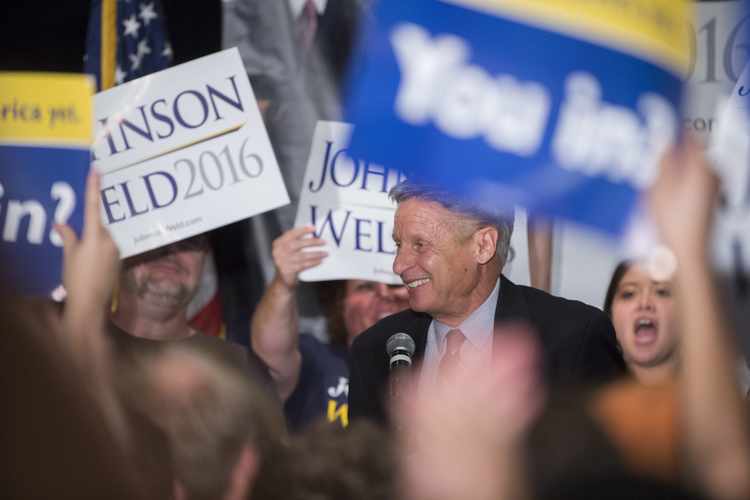This year marks the 60th anniversary of the first televised presidential debate. Like the contest between John F. Kennedy and Richard M. Nixon, debates today play a critical role in determining who will occupy the White House. They inform Americans of the positions, values and ideas of the candidates – and simply let us see how they perform under pressure.
No one has a chance of becoming president without participating in the fall debates. So ensuring a fair method of determining who can be on the stage is crucial to the integrity of our elections.
A subject of controversy for years has been the systematic exclusion of third-party and independent candidates. Their absence regularly – and unfairly – tips the scales in favor of certain candidates over others.
Next week, the Court of Appeals for the District of Columbia will hear a lawsuit against the Federal Election Commission (FEC), which I used to chair. The suit, filed by the non-profit group Level the Playing Field, argues that debate access rules set by the Commission on Presidential Debates (CPD) favor Democratic and Republican nominees and systematically exclude independents and third-party candidates. The law requires that the CPD use non-partisan, objective criteria.
The suit, which I support, will determine if any qualified American can ever successfully run for president outside the two-party nominating system. It will be heard by a three-judge panel consisting of Judges Gregory Katsas, Cornelia Pillard, and A. Raymond Randolph.
In 1987, after the withdrawal of the League of Women Voters, control of the debates was assumed by the two major political parties, which jointly formed the CPD. That organization requires participants to receive at least 15% support in a series of opinion polls shortly before the debates — a rule long subject to criticism.
As the chair of the FEC, which has oversight over some aspects of the debates, I called for a review of the debate-access rules. Why? Because since the rules’ adoption in 2000, no candidate unaffiliated with either the Democrat or Republican parties has ever surmounted the 15% hurdle.
Serious presidential candidates need to begin their campaigns at least 18 months before Election Day. How then can an independent gain early backing without some credible path into the final fall debates? Unfortunately, my colleagues disagreed. They refused even to hold a review, and the FEC continues to this day to ignore the consequences of maintaining the status quo.
Voters consistently say they prefer a more inclusive debate. The two major parties disagree. They argue that because alternative candidates are unlikely to win, they do not belong on the debate stage. But I am convinced that the absence of just such candidates harms America’s development as a nation.
As legal scholar Keith Darren Eisner argues, this narrow conception of “who belongs” misses the ways in which “third-party and independent candidates play a vital role in the American political process, a role independent of electoral success.” Without alternative candidates, compelling ideas may be lost to the American people.
Simple rule changes are easily available. For example, Mitch Daniels, president of Purdue University and a former member of the CPD, advocated dropping the arbitrary 15% hurdle.
One option would be to include the top three polling candidates as debate participants. This seems reasonable and fair, given that a monthly Gallup survey shows consistently that independents far outnumber either Democrats or Republicans.
Americans want to see other candidates on the debate stage even if those candidates have little chance to win. In 1980, when the League of Women Voters asked likely voters whether they thought John Anderson, an independent who was running against Ronald Reagan and then-President Jimmy Carter, should be included in the first presidential debate, 63% said yes – even though fewer than 15% said they would vote for Anderson on Election Day.
In 2000, more than half of American adults told pollsters that they wished Ralph Nader had been invited to participate in the first debate. In the 2016 election, nearly half of voters supported including Green Party nominee Jill Stein and Libertarian Gary Johnson in the first debate; only 39% wanted the debate restricted to the two major-party candidates. Another 2016 poll found that nine in 10 people would be just as likely or more likely to watch a debate that was “more inclusive of independent or third-party candidates.”
When alternative candidates are denied the opportunity to promote forward-thinking policies at the most widely viewed political event of election season, the entire country suffers.
When the major candidates debate only each another, rather than also having to respond to the ideas of other contenders, they can ignore any issues on which they already agree. The result is that voters are hindered from learning where the candidates stand on the full range of issues and, more generally, from encountering innovative policy ideas they may not have considered before.
By contrast, in 1992, the last time an independent candidate participated in the presidential debates, Ross Perot raised balancing the federal budget as a top issue. Although Perot failed to carry a single state, voters responded favorably to the idea, and under the winner, Bill Clinton, the budget was balanced in 1998 for the first time in 29 years.
The success of the Level the Playing Field litigation is important to maintaining a robust political process. Unless the Commission on Presidential Debates changes its access rules, Americans won’t have the real choice they deserve.

